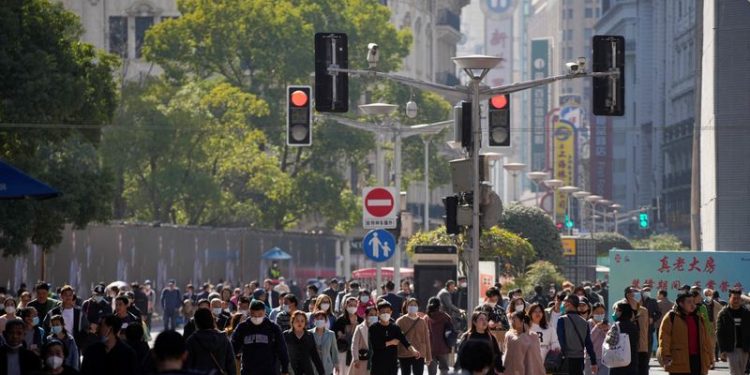BEIJING/HONG KONG (Reuters) – China’s stimulus plans to fill consumer pockets to meet its 2024 growth target breaks away from a decades-old policy playbook, but making household demand a sustainable driver of development instead of investment is a long path paved with tough choices.
Reuters reported last week that Beijing plans to issue sovereign bonds worth about 2 trillion yuan ($284 billion) this year, in part to subsidise consumer goods purchases and child support, effectively transferring funds to households.
That marks a shift towards stimulating consumption that many economists have called on Beijing to pursue for more than a decade, warning that China may otherwise grind towards a prolonged period of low growth as seen in Japan in the 1990s.
“It’s monumental – a landmark event that the policy mindset has reversed,” said Tianchen Xu, an economist at the Economist Intelligence Unit.
The tension lies in a growth model from the 1980s that many economists say has relied too heavily on investment in property, infrastructure and industry at the expense of consumers.
Economists say this model has created overcapacity in infrastructure and manufacturing and led to a staggering and unsustainable debt surge since the global financial crisis as investment returns dwindled.
While this year’s consumer-focused efforts are likely to be enough to bring China’s 2024 growth back to about 5% after below-forecast data in the past several months cast doubts over that target, they hardly change the long-term outlook.
China’s household spending is less than 40% of annual economic output, some 20 percentage points below the global average. Investment, by comparison, is 20 points above.
Closing that gap cannot happen overnight. It took Japan 17 years to raise the consumption share of its economic output by 10 percentage points from its bottom in 1991, says Michael Pettis, senior fellow at Carnegie China.
The latest fiscal effort “isn’t really part of a real structural rebalancing”, Pettis said.
“Rebalancing will require a shift in the economic model that will reverse decades of explicit and implicit transfers in which households have subsidised investment and production.”
STRUCTURAL ISSUES
The current socioeconomic policy architecture is built to prop up investment, not consumption.
For decades, households have been squeezed by low deposit rates, weak labour rights and farmer land rights contributing to low incomes, and a frail social safety net.
The tax system incentivises high investment and low wages.
China taxes capital gains at 20%, lower than the 30% in India and 37% in the United States. China’s upper personal income tax band is among the world’s steepest, at 45%.
Businesses, especially in strategic industries, get frequent tax exemptions and other incentives from both central and local governments. Supporting strategic sectors, or what Beijing calls “new productive forces” such as electric vehicles, green energy or robotics, are part of efforts of technological advancement that China sees as vital for national security.
Re-imagining the policy playbook to empower consumers would require a major coordinated effort from authorities over many years, analysts say.
Not to mention the risks.
“The ‘correct’ way to rebalance the economy towards consumption would be to stop subsidizing manufacturing companies with the money of households,” says Juan Orts, China economist at Fathom Consulting.
“What that would result in is a shrinking size of the manufacturing sector, leading to a sharp drop in investment and therefore a recession,” added Orts.
Orts, however, predicts that China is more likely to opt for a protracted period of rebalancing, leading to “Japanification”.
To fund this year’s last-ditch fiscal efforts, Beijing is expected to issue more debt, rather than alter the mechanisms of income distribution between business, government and households.
“The central government can probably fund fiscal transfers for a few years more,” Carnegie China’s Pettis said.
“But if Beijing doesn’t transform the growth model, the imbalances will continue to build, in which case China risks facing the same problem in the future as it does now, only without a clean central-government balance sheet to help it manage potential disruptions.”







